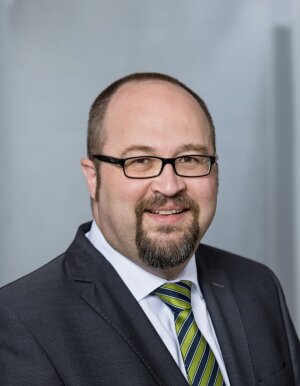The Thuringian Water Innovation Cluster (Thüringer Wasser-Innovationscluster) is to be developed into an interdisciplinary centre of national and international repute over the upcoming years. It will create new solutions for a more sustainable approach to water and contribute to embed the subject of water in society. Together with our partners we aspire to generate impulses from Thuringia to address global water issues and leverage the strengths of Thuringia’s small and medium-sized enterprises to turn cutting-edge research faster into social practice.
New approaches to a reliable water supply
The development of modern civilisations is also accompanied by the development of new chemicals, e.g. for the manufacturing industry, the pharmacy industry, or industrial agriculture. As emerging pollutant classes, these chemicals may find their way into the water. Here, their frequently low concentrations make them hard to measure, and existing methods do not allow a cost-effective and broad-scale removal. ThWIC is establishing new methods for registering and removing anthropogenic pollutant classes and propels the digitalisation of the water sector through new forms of high-throughput analysis and water data management.
Establishing integrated water assessment
Despite its existential significance, water is not adequately appreciated in many contexts. This is crucially related to the fact that, as of now, there is no cohesive water accounting system that registers parameters such as the usage, pollution, consumption, purification, distribution, and subjective perception of water simultaneously, and consolidates them to a manageable variable. ThWIC is creating the basis for such an integrated water assessment by linking sociological and data science research systematically with the natural sciences’ research on water, and by developing qualitatively innovative accounting processes for water.
Effects on economy and society
Access barriers often keep top-level research insights on the topic water from economy and society. As a publicly visible institution, ThWIC aims to contribute to the breaking down of those barriers, to make water issues more visible in society, and to support companies in making use of economic opportunities in the water sector. With education and participation programs, public water literacy is to be increased in the long term and an effective competency buildup in the region is to be promoted.
Powerful partners in the region
As a strong innovation network, ThWIC brings together actors from the regions Jena/Saale valley, Thuringia, and its bordering federal states. We are putting our trust in the close cooperation of academics, economy, public administration and civil society. ThWIC represents the alliance between top-level research, entrepreneurship and social responsibility.
The cluster's spokesperson
Porträt Michael Stelter
Image: Jürgen LöselProf. Dr. Michael Stelter
Prof. Dr. Michael Stelter is institute director at the Center for Energy and Environmental Chemistry(CEEC) and has a professorship for Technical and Environmental Chemistry at the University of Jena. He is furthermore a member of the management of the Fraunhofer IKTS instituteExternal link. Having worked in the industry for multiple years, he is a prominent player in the domains of electrochemical reaction engineering and environmental and energy technology. He has many years of experience in the set-up and management of clusters and large-scale academic structures (management of the Fraunhofer Centre for Energy Storage and Systems ZESS (Fraunhofer-Zentrum für Energiespeicher und Systeme ZESS)External link, set-up of the Battery Innovation and Technology Center BITC (Batterie-Innovations- und Technologie-Center BITC)External link, among others), as well as in transfer (co-founding of today’s Sunfire GmbHExternal link). Furthermore, he is on the board of the Competence Network for Renewable Energies, Energy Storage, Energy Efficiency and Sector Coupling (Thüringer Erneuerbare Energien Netzwerk e. V., ThEEN)External link.



